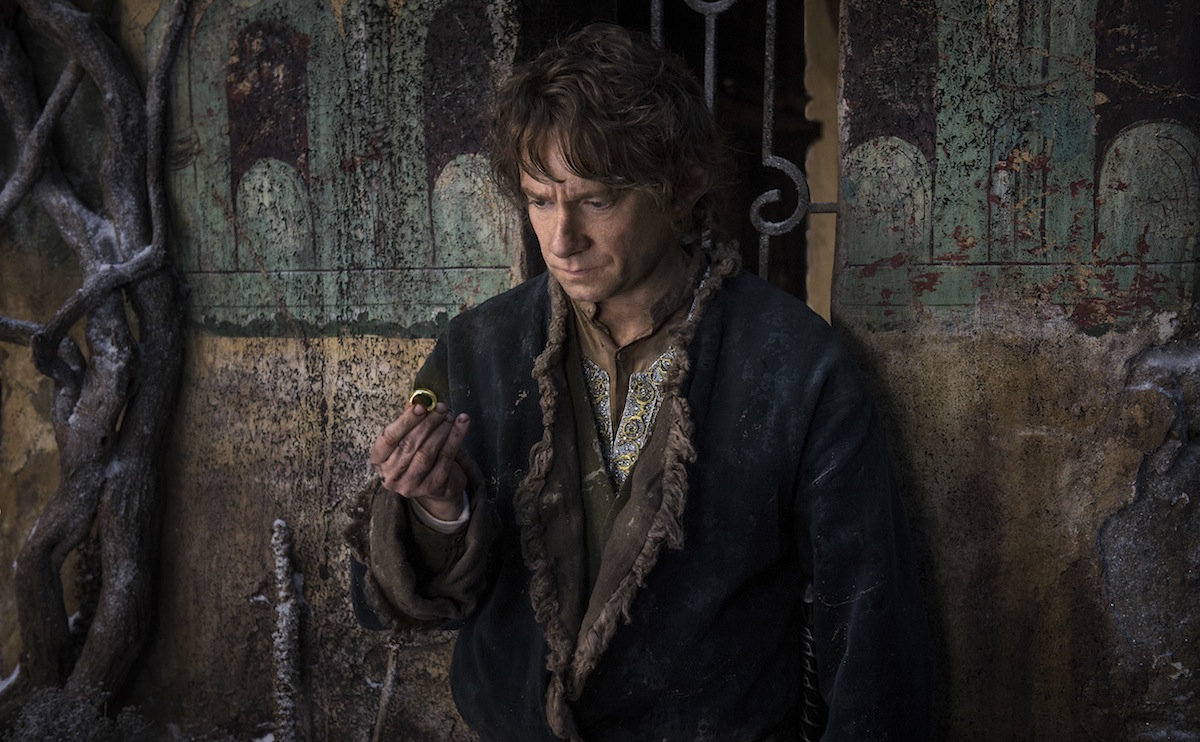
When The Hobbit: The Battle of the Five Armies is released on Wednesday, it will likely mark the end of Peter Jackson’s stint bringing J.R.R. Tolkien’s classic fantasy novels to the big screen. Fans of The Lord of the Rings and The Hobbit have been able to enjoy the films for over a decade now, and so the release of this sixth installment is likely to bring with it mixed feelings: happiness, finality, nostalgia.
It will be a combination familiar to Tolkien’s long-time fans, who encountered the same feeling as he wrote the books over the course of decades.
Those fans may also be familiar with a word that Tolkien coined decades ago to describe the feeling of something ending the way it’s supposed to: Eucatastrophe. (That’s the positive prefix Eu, as in euphoria, plus catastrophe.) Here’s how TIME described it in Tolkien’s 1973 obituary:
But [Tolkien] did point out that literal-minded folk who object to fairy stories as escapist mistake the wartime escape of the deserter (bad) for the wartime escape of the prisoner (necessary and good). Fairy tales represent the latter, Tolkien continued, and correspond to the primordial human desire—in a world of poverty, injustice and death —for the “consolation of the happy ending.” Tolkien even coined a word—Eucatastrophe—for this happy quality.
Eucatastrophe gives the reader “a catch of breath, a beat and lifting of the heart, a piercing glimpse of joy and heart’s desire.”
For one thing, the moment in The Hobbit that Tolkien himself identified as the most “eucatastrophic” is included in the section of the book that’s the source for this movie. There’s also the external eucatastrophe: for those who love the movie, there’s the consolation Tolkien describes, the joy of a tale coming to an end — and for those who don’t like it, there’s the consolation of knowing it’s over.
Read TIME’s 1966 article about the fad for all things Tolkien, here in the TIME Vault: The Hobbit Habit
More Must-Reads from TIME
- Donald Trump Is TIME's 2024 Person of the Year
- Why We Chose Trump as Person of the Year
- Is Intermittent Fasting Good or Bad for You?
- The 100 Must-Read Books of 2024
- The 20 Best Christmas TV Episodes
- Column: If Optimism Feels Ridiculous Now, Try Hope
- The Future of Climate Action Is Trade Policy
- Merle Bombardieri Is Helping People Make the Baby Decision
Write to Lily Rothman at lily.rothman@time.com